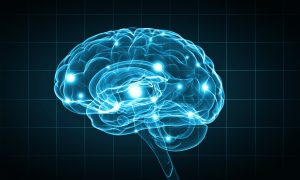 Aims: To understand cognition, the aetiology of cognitive impairments, the range of impairments and the impact these can have upon rehabilitation and the ability of the person to manage their daily lives. To understand what strategies can help and support the cognitively impaired person.
Aims: To understand cognition, the aetiology of cognitive impairments, the range of impairments and the impact these can have upon rehabilitation and the ability of the person to manage their daily lives. To understand what strategies can help and support the cognitively impaired person.
Cognition refers to the mental processes that happen in our brain to support thinking, learning, understanding, remembering, attention, and how we use the knowledge we have to plan, direct, monitor and change our behaviour. The word cognitive derives from both Greek and Latin and broadly means ‘to know’.
Cognitive impairments can arise from damage to areas throughout the brain. All of the lobes of the brain and deeper structures of the brain such as the basal ganglia, hippocampus and the amygdala have functions which support cognition. Cognitive processes are also dependent on the connecting ‘networks’. Changes to these connections can impact on cognitive functioning. The type and severity of cognitive impairment depends on which areas of the brain have been damaged and the extent of the damage.
Cognitive abilities are essential for managing our everyday lives and for living in a social world. Following Acquired Brain Injury cognitive impairments may range from mild to severe.
In some people, cognitive impairments are a ‘hidden’ disability; in many respects the person may be capable of walking, talking and carrying out many everyday tasks (providing there is no damage to the areas of the brain responsible for maintaining these abilities). However, the damage caused to areas of the brain responsible for cognitive processes can have catastrophic consequences on the life and abilities of the person and upon their family, friends and colleagues. The person with severe cognitive impairment may present as highly confused and distressed; they may therefore be very vulnerable.
Significant cognitive impairments affecting attention, information processing, memory and executive functioning can have a major impact upon the person’s everyday life affecting the ability to:
- Make and maintain relationships.
- Engage in and manage social interactions.
- Make and apply sound social judgements.
- Engage in normal social and leisure activities.
- Maintain independent living.
- Run their home (i.e. management of practical and financial matters).
- Maintain pre-injury family roles (e.g. looking after other family members) and relationships.
- Manage everyday tasks.
- Sustain employment or education.
- Travel independently (e.g. drive, access public transport, be able to navigate a route, plan travel arrangements).
Other factors which may adversely affect all aspects of cognition following brain injury include:
- Noise levels
- Fatigue
- Pain
- Anxiety
- Depression
- Physical health issues (e.g. infection)
- Hunger and thirst
- Seizures
- Medication (e.g. benzodiazepines, antipsychotics)
Cognitive impairment can impact upon the person’s ability to make informed decisions and choices relating to their life, activities, health and wellbeing, their need for care and support and their residential arrangements. The person with significant impairments may require substantial levels of support in order to ensure their health, safety and wellbeing.
In some circumstances, it is necessary to use legislation such as the Adults with Incapacity (Scotland) Act 2000 and/or the Adult Support and Protection (Scotland) Act 2007 . If the person requires intervention in the context of psychological and psychiatric difficulties, it may be necessary to use the Mental Health (Care and Treatment) (Scotland) Act 2003. The primary objective of applying these pieces of legislation in the context of brain injury is to ensure that the person receives appropriate care, support and treatment.
Please follow the links below for information about cognitive processes, the impact of acquired brain injury upon these abilities, how to support people with cognitive impairments and basic guidelines for cognitive assessment:
Attention
Information Processing
Memory
Language Processing
Visual Processing
Executive Functioning


